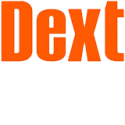Make the most of year-end
By: Jay Parks

As we enter the last quarter of the year, many people begin thinking about holiday plans, charitable giving, or closing out the books—but this is also the time to get intentional about retirement contributions. Whether you're self-employed or working a W-2 job, what you do before December 31 can have a significant impact on your tax return in April.
Here's what to know (and what to act on) while you still have time.
1. Leverage year-end bonuses for 401(k) contributions
Many employers distribute bonuses during the holidays. If you receive one, you may have the option to allocate a portion of that bonus into your 401(k). Depending on your plan's rules, this could help you increase your retirement savings and reduce your taxable income for the 2025 tax year.
Check with your HR department or plan administrator to see if you can adjust your withholdings in time for that year-end payout.
2. Small adjustments can mean big savings
If you're close to moving into a higher tax bracket, increasing your 401(k) or Traditional IRA contributions may help you stay in a lower one. Even a slight adjustment before the end of the year can make a difference:
Move from the 24% tax bracket to the 22%
Stay under phase-out limits for credits or deductions
Boost your retirement savings with help from Uncle Sam
3. Self-employed? You've got extra flexibility
If you're self-employed, your retirement planning opportunities are even more flexible. You can fund a SEP IRA, Solo 401(k), or Traditional IRA up until the filing deadline and still deduct it on your 2025 return. For example:
Fund your account up to April 15, 2026
Extend your return and gain even more time to make the contribution
Reduce your taxable income and invest for the future at the same time
These expenses aren't typically deductible, but with a bit of planning, they could be. Just remember: the earlier you start planning, the easier it is to make those contributions by the deadlines.
4. Don't forget your HSA
Your Health Savings Account (HSA) is another place to look before year-end. If you haven't maxed it out yet, topping it off can offer triple tax benefits:
Contributions are tax-deductible
Growth is tax-free
Withdrawals for qualified medical expenses are tax-free
Make sure contributions are completed by December 31 if your HSA is linked to your employer. Otherwise, you may still have time to contribute independently.
Start now, act later
These moves don't happen automatically. You'll need to consult with your plan administrator, bookkeeper, or CPA (Hey, that's us) to ensure the math and timing align. But starting now gives you the time and space to fund retirement accounts strategically—and potentially lower your tax bill in the process.
Need help figuring out what's possible based on your income or business structure? Let's talk.



